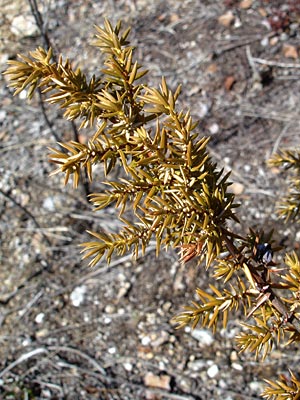
2. Just greening-up from winter with the
female strobiles in the whorls of the leaf axils. Note needle-like leaves
in communis as opposed to the scale-like leaves in other members of the
genus.
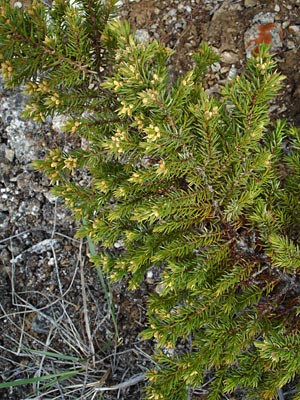
4. Male strobiles on J. communis photographed
in mid-June.
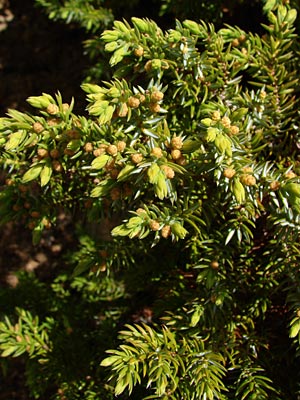
6. Closer view of male strobiles. Note the
new growth at the tips of the branches.
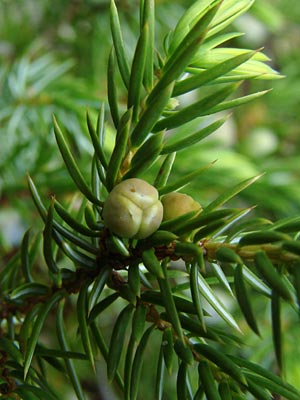
8. Close up of first year female cone.
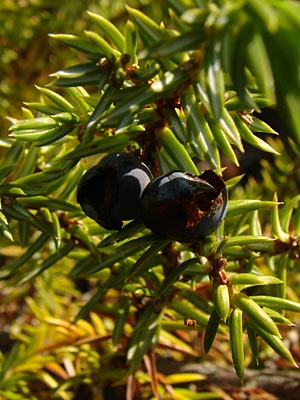
10. Early July photo of mature cones, probably
in their third year.
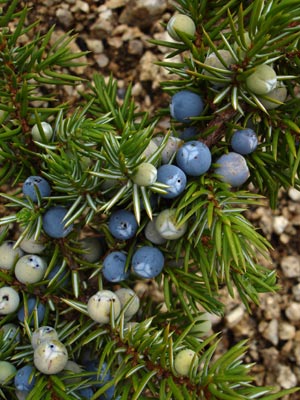
12. Mid-august photo of first year cones
(yellow-green) and the now fully-blue second-year cones.
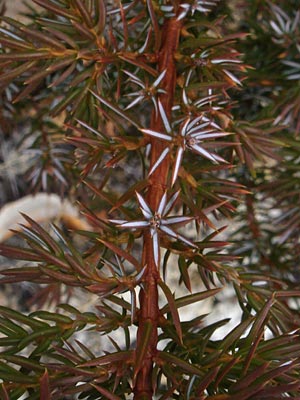
14. Late September close up of the leaves as summer-fall fades. Note
how prominent the stomatal band has become.
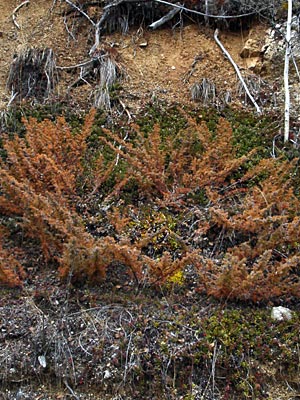
16. Another photo taken on October 10, 2006 showing the plant entering
winter dormancy.
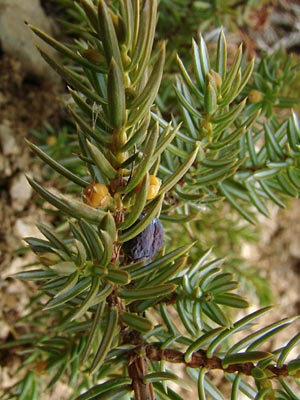
3. Late May photo of Female cones in early
stage of development. Note shriveled fully developed cone and also light
stomatal band in center of leaf. This band will intensify as the year progresses.
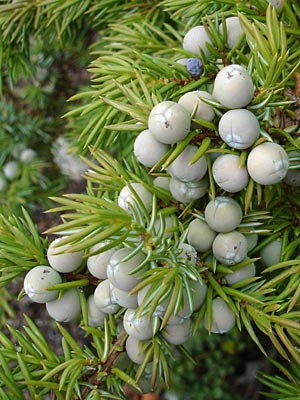
5. A cluster of first year female cones
taken in mid-June at the same time as the photo at the left.
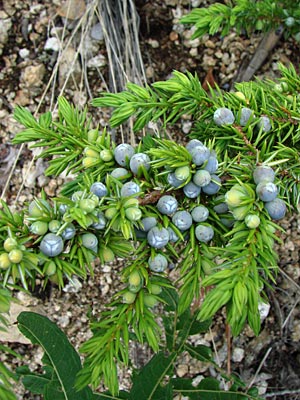
7. Photo taken in late June showing new
cones (yellow-green) in various stages of development and last year's cones
turning blue.
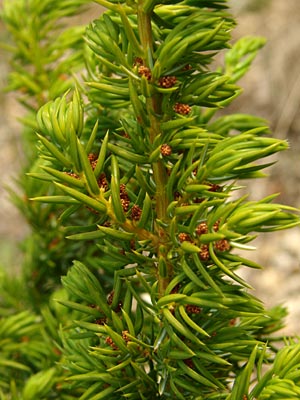
9. Late June photo of male strobiles
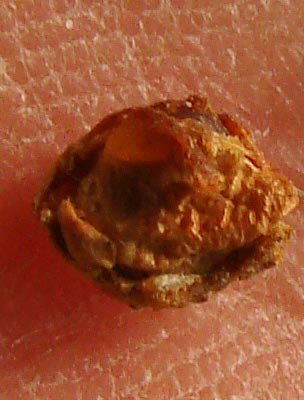
11. Seed removed from one of the cones at left.
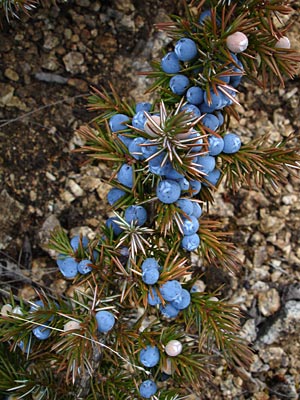
13. Mid-September photo of mixed although
primarily second-year cones as the needles-like leaves begin the change
to their winter brown color.
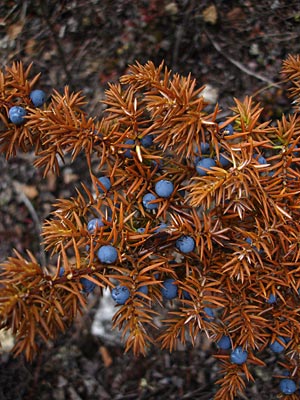
15. Photo taken on October 10, 2006 just before snow covered the plant
for the winter.
17. June 2, 2011. Close-up of new growth
and Male strobiles. Click on photo to
download large photo.

Home
Page Kingdom
Index Plant
Index
Cupressaceae Index
Juniperus communis var. depressa Pursh
17 photos.
The "common juniper. Variety depressa is the only variety of
four which is found in Alaska.
ITIS Taxonomic Serial No. 528646
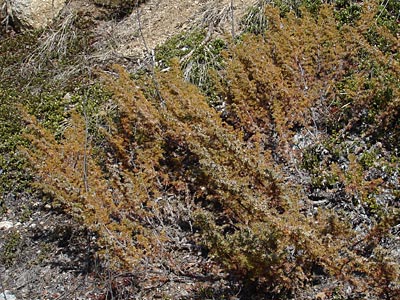
1. Early May photo of J. communis as the plant emerges from
winter dormancy.
Approximate dates are given for the photos, however they were taken over
a period of
three years and the plant development may have varied by year.